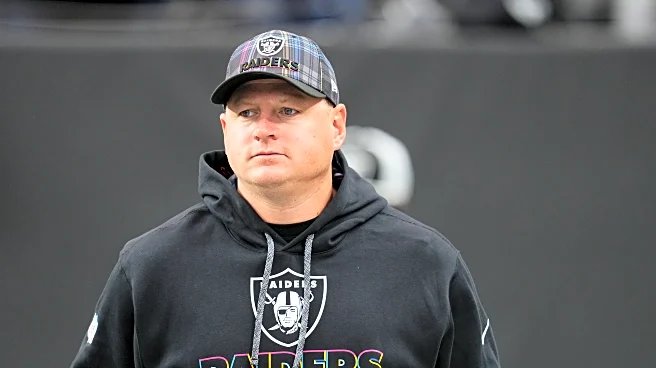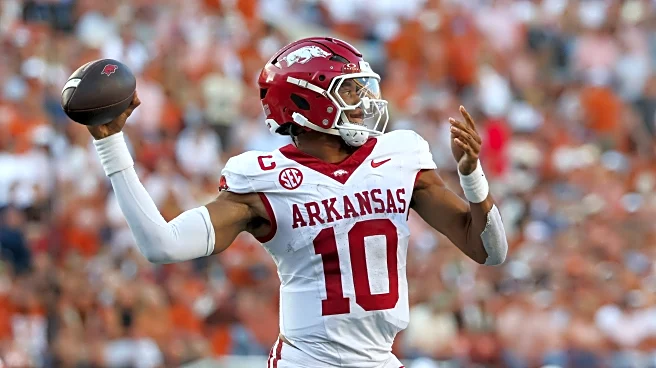In a striking turn of events, Alina Habba, the interim U.S. Attorney for New Jersey and a former personal lawyer to Donald Trump, has been thrust into the spotlight following an explosive decision by federal
Did You Know
In Switzerland, it's illegal to own just one guinea pig because they're prone to loneliness.
?
AD
judges. Just as her term was set to expire, a panel of judges opted not to appoint her permanently, citing concerns regarding her qualifications. This rejection points to a broader concern about the influence of political affiliations on judicial appointments and the capability of legal representatives to serve the public impartially.
In a dramatic maneuver to counter this judicial ruling, Attorney General Pam Bondi swiftly fired Desiree Leigh Grace, who was named by judges as Habba’s successor shortly after their decision. This intervention not only underscores the Trump administration's determination to maintain control over key judicial roles but also highlights the escalating tensions between the executive branch and the judiciary. With criticisms of Habba echoing from prominent New Jersey politicians, the dynamics surrounding her removal delve into the struggle to balance loyalty to the administration and the integrity of judicial independence.
This unfolding saga has captivated national attention by illustrating the friction between a former president's loyalists and an independent judiciary. As factions within the Department of Justice rally around Habba, the situation crystallizes the complexities of power, loyalty, and the pursuit of justice in an era marked by polarization. With the fallout from the January 6 Capitol riots still resonating, this conflict exemplifies the challenges facing the Trump administration as it seeks to navigate a judiciary that has become a battleground for political ideologies and ambitions.
Q&A (Auto-generated by AI)
What are the implications of judicial appointments?
Judicial appointments, especially for roles like U.S. attorneys, can significantly influence legal enforcement and policy direction. In this case, the rejection of Alina Habba by federal judges reflects a check on executive power, emphasizing the judiciary's role in maintaining accountability. Such decisions can set precedents for future appointments and signal to the public and other branches of government the judiciary's stance on political interference.
How does this case reflect political tensions?
The conflict over Alina Habba's appointment illustrates the ongoing political tensions between the Trump administration and the judiciary. The judges' decision to deny her continued role as New Jersey's top prosecutor highlights concerns about political motivations behind judicial appointments. The swift actions taken by the DOJ to replace Habba's successor further indicate a struggle for control over federal legal authority, showcasing the friction between branches of government.
What role does the DOJ play in U.S. attorney appointments?
The Department of Justice (DOJ) is responsible for overseeing federal law enforcement, including the appointment of U.S. attorneys. Typically, the President nominates U.S. attorneys, who are then confirmed by the Senate. However, the DOJ can influence these appointments through its policies and actions, as seen when Attorney General Pam Bondi intervened to remove the judge-appointed successor to Alina Habba, indicating the DOJ's significant role in maintaining political alignment.
What is Alina Habba's background in law?
Alina Habba is a former personal lawyer to President Donald Trump, known for her involvement in high-profile legal matters related to Trump's business and political activities. Before her appointment as New Jersey's interim U.S. attorney, she had a background in litigation and corporate law, which positioned her in a controversial role as a federal prosecutor, raising questions about her impartiality and the influence of political affiliations on her legal decisions.
How do federal judges influence executive decisions?
Federal judges exert influence over executive decisions through their rulings, particularly in cases involving appointments and legal interpretations. In this scenario, the judges' refusal to extend Alina Habba's term as U.S. attorney reflects their authority to check executive power. Their decisions can challenge the administration's choices, ensuring that appointments align with legal standards and public interest, thereby reinforcing the system of checks and balances.












